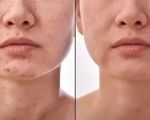- 1-Understanding-Depression-and-the-Need-for-Alternative-Therapies
- 2-How-Spa-Treatments-Help-Relieve-Depression-Symptoms
- 3-Stress-Reduction-and-Its-Role-in-Depression-Management
- 4-Physical-Benefits-of-Spa-Therapy-for-Mental-Health
- 5-Case-Studies-and-Personal-Experiences
- 6-Integrating-Spa-Treatments-Into-Comprehensive-Care
- 7-Recommendations-from-Spa
1. Understanding Depression and the Need for Alternative Therapies
Depression is a complex mental health disorder characterized by persistent sadness, loss of interest in activities, and various physical and emotional symptoms. While traditional treatments like medication and psychotherapy are essential, many individuals seek complementary approaches to enhance their well-being. Spa treatments, known for relaxation and rejuvenation, are increasingly recognized for their benefits in alleviating symptoms of depression. These therapies create a calming environment that can complement conventional treatment plans.
Understanding the multifaceted nature of depression and its impact on the body and mind opens the door to exploring holistic therapies like spa treatments, which offer a natural pathway to improved mood and reduced anxiety.
2. How Spa Treatments Help Relieve Depression Symptoms
Spa treatments encompass a variety of therapies such as massages, hydrotherapy, aromatherapy, and mindfulness practices, all of which contribute to emotional healing. Massages, for example, stimulate the release of endorphins and serotonin—neurotransmitters linked to happiness and reduced pain perception. This chemical shift in the brain can directly alleviate depressive symptoms.
Hydrotherapy and warm baths promote muscle relaxation and improve circulation, reducing physical tension that often accompanies depression. Aromatherapy uses essential oils like lavender and chamomile, known for their calming properties, to ease anxiety and uplift the mood. Collectively, these treatments provide a sensory experience that encourages relaxation, mindfulness, and emotional balance.
3. Stress Reduction and Its Role in Depression Management
Chronic stress is a significant contributor to depression, exacerbating symptoms and impairing recovery. One of the most profound benefits of spa treatments is their ability to reduce stress levels effectively. Techniques such as deep tissue massage and guided meditation during spa sessions help lower cortisol—the body’s primary stress hormone.
Reducing cortisol not only improves mood but also enhances immune function and overall energy levels. Many patients report feeling more centered and less overwhelmed following regular spa visits, which supports sustained mental health improvements. The tranquil spa environment fosters mental clarity and breaks the cycle of anxiety and negative thinking often seen in depression.
4. Physical Benefits of Spa Therapy for Mental Health
Depression frequently manifests with physical symptoms such as fatigue, aches, and sleep disturbances. Spa treatments address these symptoms holistically, providing physical relief that supports emotional healing. Therapeutic massages alleviate muscle stiffness and joint pain, while warm water therapies encourage restful sleep by relaxing the nervous system.
Improved circulation from spa therapies enhances oxygen and nutrient delivery to tissues, boosting vitality and reducing fatigue. The combination of physical comfort and emotional calm creates a positive feedback loop that enhances resilience against depressive episodes. This integrated effect highlights the importance of addressing both mind and body in depression treatment.
5. Case Studies and Personal Experiences
Many individuals have shared transformative experiences with spa treatments as part of their depression management. For example, Emily, a 35-year-old professional, struggled with persistent anxiety and depressive symptoms for years. After incorporating regular massage and aromatherapy sessions into her routine, she noticed significant mood improvements and decreased reliance on medication.
Another case involved Mark, who found hydrotherapy effective in easing his chronic fatigue and depressive episodes. These stories underline the potential of spa treatments to complement traditional therapies, providing emotional relief and enhancing quality of life. They also encourage others to consider holistic approaches tailored to individual needs.
6. Integrating Spa Treatments Into Comprehensive Care
While spa treatments offer many benefits, they are most effective when integrated into a broader depression care plan. Collaboration between healthcare providers, therapists, and spa professionals can ensure that treatments align with medical needs and personal goals. Patients should discuss spa therapy options with their doctors, especially if they have underlying health conditions.
Customized spa programs can be designed to include mental health support, nutritional guidance, and physical therapies. Such integrative approaches promote sustained wellness and empower individuals to take an active role in their recovery. The holistic care model recognizes the interplay between physical relaxation, emotional balance, and psychological healing.
7. Recommendations from Spa
If you or a loved one are exploring natural ways to support mental health, Spa offers a range of specialized treatments tailored for depression relief. From calming massages to personalized aromatherapy blends, you can find expert guidance and products designed to nurture emotional well-being.
Visiting Spa for professional care can be a valuable step toward managing depression symptoms alongside conventional treatments. Embracing spa therapies encourages self-care and provides a sanctuary for healing, making it easier to navigate the challenges of depression with renewed strength and hope.








